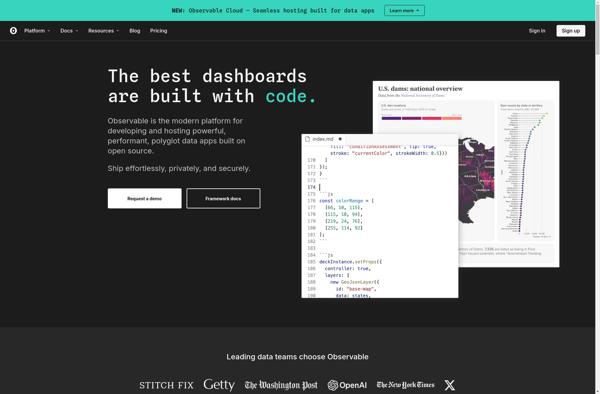Nodebook
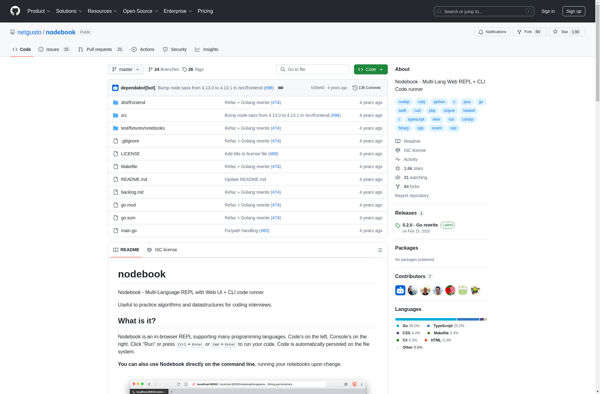
Nodebook: Open-Source Web-Based Notebook Application
Nodebook allows users to create and share documents with live code, equations, visualizations, and explanatory text, supporting JavaScript, TypeScript, Python, and R programming languages.
What is Nodebook?
Nodebook is an open-source web-based notebook application designed for data analysis and scientific computing. Similar to Jupyter Notebook, Nodebook allows users to create interactive notebooks that combine live code, rich text elements, mathematical equations, plots and other multimedia.
Key features of Nodebook include:
- Support for JavaScript, TypeScript, Python and R runtimes - write and execute code in these languages interactively in notebooks
- Built-in data visualization with Plotly, D3.js and other JavaScript libraries
- LaTeX math typesetting for mathematical equations
- Code completion, linting and other editing features
- Import/export notebooks as JSON files
- Share and publish notebooks online
- Plugin architecture to extend functionality
- Open source under MIT license
As a web application, Nodebook lowers barriers to getting started with literate programming and reproducible science compared to having to install complex toolchains. It can help individuals and teams collaborate more effectively on data analysis and modeling work.
Nodebook Features
Features
- Web-based notebook interface similar to Jupyter Notebook
- Supports live code, equations, visualizations, and text
- Built-in plotting and charting
- Code cell execution
- Markdown support
- LaTeX equation support
- Code autocompletion
- Shareable notebooks
- Supports JavaScript, TypeScript, Python and R languages
Pricing
- Open Source
- Free
Pros
Cons
Official Links
Reviews & Ratings
Login to ReviewThe Best Nodebook Alternatives
Top Development and Notebook Environments and other similar apps like Nodebook
Here are some alternatives to Nodebook:
Suggest an alternative ❐Jupyter
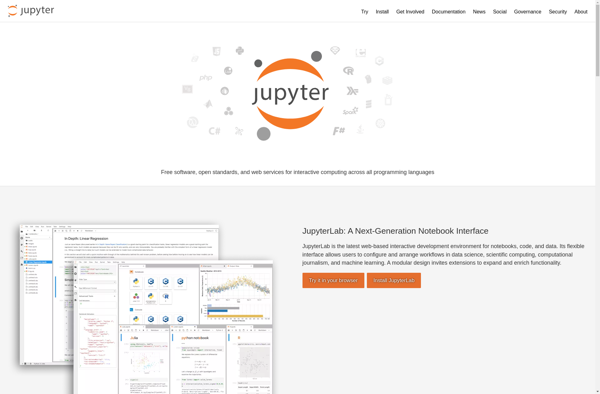
Deepnote
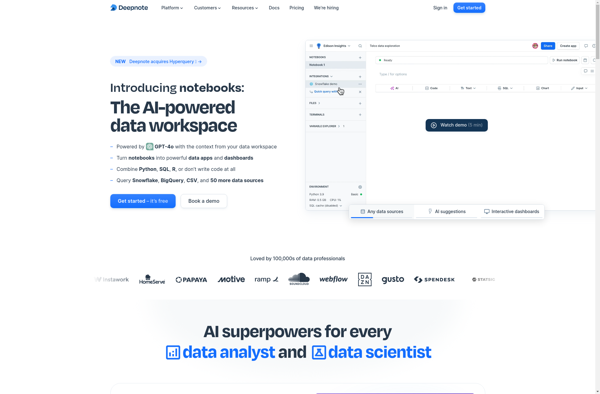
Livebook
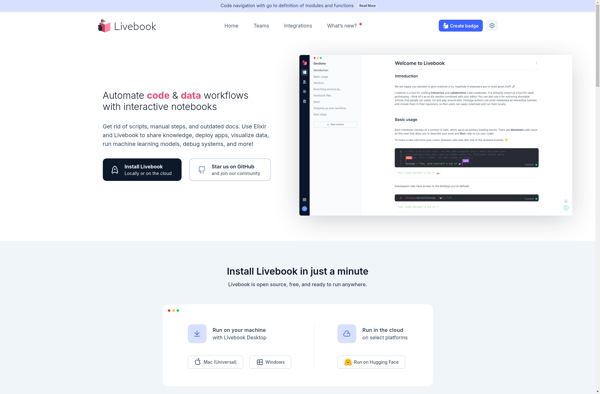
Tinkerwell
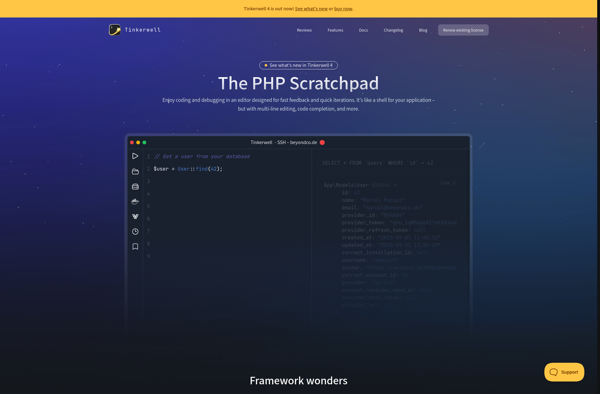
Observable Notebooks
